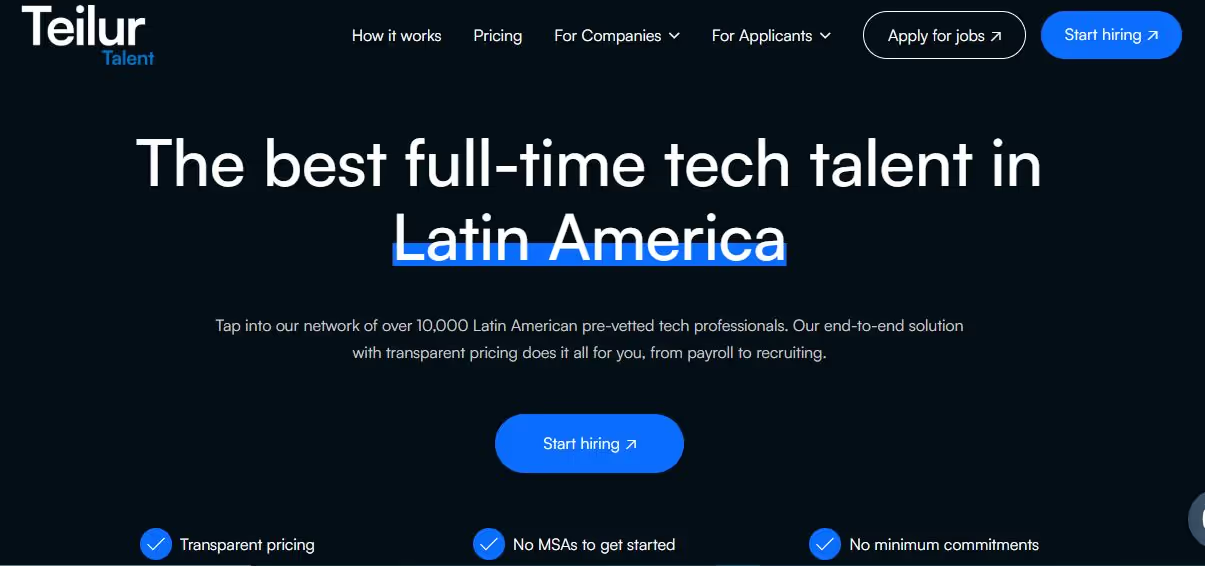Companies constantly seek innovative ways to optimize their workforce and maintain a competitive edge. Among the myriad strategies available, staff augmentation has emerged as a particularly popular approach. No longer a temporary fix, staff augmentation has become a foundational strategy for companies seeking to expand their workforce with precision and agility. This article explores the key differences between Staff Augmentation vs Outsourcing, highlights the strategic advantages of each, and explains why staff augmentation is increasingly becoming the go-to choice for many businesses.
What is Staff Augmentation?
Staff augmentation refers to the strategic addition of skilled professionals to an organization’s existing workforce on a temporary or long-term basis. This approach allows businesses to scale their teams quickly and fill critical skill gaps.
There are several types of staff augmentation, including:
- Skill-based augmentation: Hiring specialized talent to fill a specific role or skill set.
- Commodity augmentation: Bringing in additional hands for high-volume work that does not require specialized skills.
- Consultative augmentation: Engaging professionals who bring both skills and strategic insight to the team.
The benefits of staff augmentation:
- Flexibility: Companies can quickly scale their workforce up or down depending on project needs.
- Cost-efficiency: If you prefer, you can avoid the costs such as benefits and pensions.
- Access to specialized skills: Tap into an international talent pool to find the exact skills needed for a job.
What is Outsourcing?
Outsourcing, on the other hand, involves delegating entire projects or functions to an external organization. This can take many forms, including project-based outsourcing, where a third-party vendor is responsible for delivering a specific outcome, and dedicated teams, where an external group of professionals works exclusively on the client’s projects.
Outsourcing offers several advantages:
- Cost savings: Outsourcing can be more cost-effective, particularly for large-scale projects or functions that are not core to the business.
- Focus on core business: By outsourcing non-core activities, companies can concentrate on their primary business objectives.
- Access to global talent: Outsourcing partners often have access to a broad range of skills and expertise that may not be available internally.
Staff Augmentation vs Outsourcing: A Comparison
When comparing Staff Augmentation vs Outsourcing, several key differences emerge, each with implications for how businesses choose to manage their workforce.
1. Flexibility and Control
Staff Augmentation: Offers companies greater flexibility and control over their projects. Augmented staff work directly under the company's supervision, ensuring alignment with internal processes and culture.
Outsourcing: Typically involves less direct control, as the external vendor manages the project independently.
2. Cost Considerations
Staff Augmentation: While there are costs associated with hiring augmented staff, these can be more manageable and predictable than the often higher upfront costs of outsourcing.
Outsourcing: It can offer cost savings, especially for well-defined, long-term projects, but these savings must be weighed against potential risks like loss of control and communication challenges.
3. Scalability
Staff Augmentation: Ideal for projects that require rapid scaling of teams. Companies can quickly add talent to meet project demands without the long lead times associated with traditional hiring.
Outsourcing: Also scalable, particularly when leveraging large, established vendors, but may be less agile than staff augmentation in responding to changing project needs.
Outsourcing : When Is It the Right Choice?
While staff augmentation offers many advantages, outsourcing remains a valuable strategy, particularly for certain projects. Outsourcing is often the best choice when:
The project is well-defined: Large-scale projects with clear outcomes are well-suited to outsourcing.
Cost is a primary concern: Outsourcing can be more cost-effective for certain types of work, particularly when internal resources are limited.
Specialized expertise is required: If a project requires skills or technologies that are not available in-house, outsourcing can provide access to the necessary expertise.
Staff Augmentation in a Modern Business Environment
The perception of staff augmentation has evolved significantly. Once seen as a temporary solution, it is now a vital component of many companies’ workforce strategies. Businesses are increasingly using staff augmentation to not only fill short-term gaps but to build a more dynamic and responsive workforce.
Teilur Talent specializes in providing top-tier staff augmentation services, helping companies navigate today’s complex business landscape with confidence. The approach is tailored to meet each company's unique needs, ensuring they have the right talent working for the same goals.

Considerations for Choosing Between Staff Augmentation vs Outsourcing
When deciding between Staff Augmentation vs Outsourcing, several factors should be considered:
Project scope and duration: Short-term, well-defined projects may be better suited to outsourcing, while ongoing or evolving projects may benefit from staff augmentation.
Internal capabilities: If a company has robust internal processes and management, staff augmentation can provide the additional resources needed to enhance these capabilities.
Long-term goals: Companies focusing on building internal expertise and capabilities may prefer staff augmentation.
FAQ
What is the difference between team augmentation and outsourcing?
Team augmentation involves adding skilled professionals to your existing team to fill specific roles or skill gaps. These professionals work under your direct supervision. On the other hand, outsourcing involves delegating entire projects or functions to an external organization, which manages the project independently.
What is the difference between staff augmentation and outsourcing a dedicated team?
Staff augmentation adds individual experts to your in-house team for specific tasks or projects, maintaining control over the project. Outsourcing a dedicated team involves hiring an entire external team that works on your project, but typically under the management of the outsourcing provider.
What is considered staff augmentation?
Staff augmentation refers to strategically adding skilled professionals to an organization’s workforce to address specific needs, such as skill gaps.
What is the difference between staffing and outsourcing?
Staffing typically refers to recruiting permanent or temporary employees for an organization, either directly or through a staffing agency. Outsourcing involves contracting a third party to independently handle specific business functions or projects.
Conclusion: Staff Augmentation vs Outsourcing, Who Wins?
In the debate between Staff Augmentation vs Outsourcing, both strategies offer distinct advantages depending on the needs of the business. However, staff augmentation has emerged as a powerful tool for companies seeking to enhance their workforce with precision and agility. By choosing the right approach, businesses can optimize their resources, respond to market demands, and achieve their strategic goals. To explore how staff augmentation can benefit your company, contact us today.








